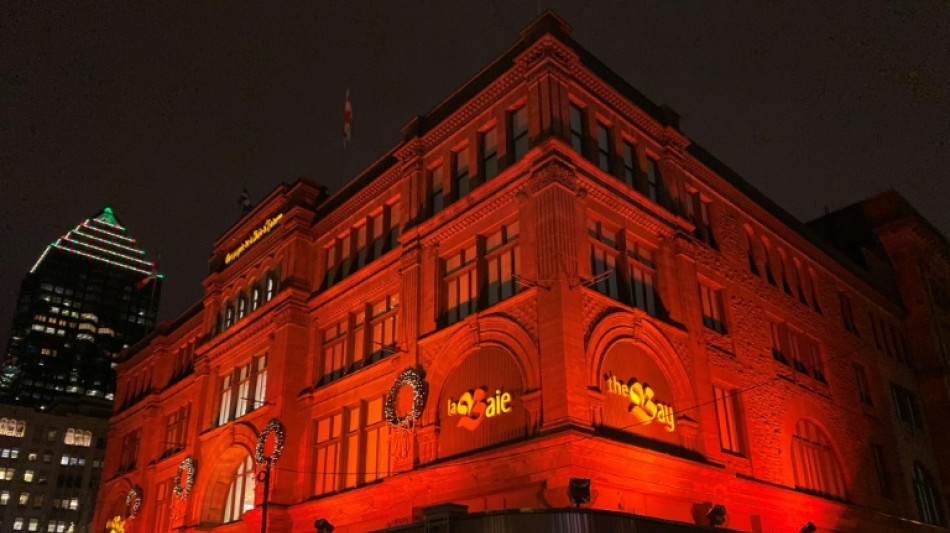

Hudson's Bay Company: from fur trade to department store downfall
From the 17th century fur trade that birthed a nation to the last major department store in Canada, The Hudson's Bay Company has left an indelible mark, but its storied 354 years are crashing to an end.
Canada's oldest company -- after filing on March 7 for protection from the creditors that are owed more than Can$1 billion (US$700 million) -- has received court approval to close all but six of its 80 stores.
The US-based private equity owners of the company, who acquired it in 2008, will also shutter three Saks Fifth Avenue and 13 Saks Off 5th locations it operates through a licensing agreement.
This all comes at a time when Canada faces threats of annexation from its giant southern neighbor, after President Donald Trump repeatedly declared that Canada is not a real country and should become the 51st US state.
For Canadians mourning the loss of their heritage, it's a major blow.
Andre Fortin, 90, said the store has been a big part of his life in Montreal. "I shopped here often. The store had everything we wanted."
"It's a part of our history," he told AFP.
HBC's flagship downtown Toronto department store and five others in the Toronto and Montreal areas have been spared in the initial cull. But they could eventually be liquidated as well, company lawyer Ashley Taylor told a recent hearing.
The court heard last week that more than 9,000 jobs will be lost in one of the nation's largest mass terminations.
- Rupert's Land -
Founded in 1670 by fur traders given a royal charter by the British monarch King Charles II, the company once owned a swath of western and northern Canada.
"It was hugely important to what we now call Canada," Amelia Fay, curator of the HBC collection at the Manitoba Museum in Winnipeg, which has more than 27,000 artifacts, told AFP.
The company established trading posts, she explained, "initiating a colonial process that shaped Canada."
Several of those outposts became Canadian cities, such as Winnipeg, Edmonton and Vancouver.
However, the company is also seen today as a symbol of the colonization of Indigenous populations, which led to a policy of assimilation that was devastating for the First Nations.
In 1869, two years after the founding of Canada, HBC sold its land holdings -- which were known as Rupert's Land and included parts of what are now five provinces and two Arctic territories -- to the nascent country.
"That large real estate transaction was a pivotal moment in the history of Canada," Fay said.
The company, meanwhile, shifted into retail as furs stopped being popular.
In the early 20th century, as Canada's population exploded with the arrival of more settlers, HBC built large department stores in cities across the country.
"The reason HBC was so successful was their ability to adjust to what was happening in the world, to change course. And it seems that that is no longer the case," Fay commented.
- Liquidation sales -
Online shopping and changing consumer habits, say retail experts, both played a part in the decline of the iconic department store, whose downfall is just the latest in a string of North American closures.
"We're witnessing the retiring of the department store as we know it," said retail analyst Bruce Winder.
The retail sector, he said, has fractured into niches from discount chains like Walmart to stores selling luxury and specialty brands.
At once-bustling stores across Canada this week, shoppers picked through merchandise looking for bargains and memorabilia such as HBC wool blankets with colored stripes that date back to the 1700s and, according to Fay, "have become a symbol of the company and Canada."
"They're all gone," a disappointed shopper in Ottawa said with a sigh.
Sophia Cisneros, 22, recalled fondly that her mother used to take her shopping here. "The Bay had whatever we needed: clothes, shoes, kitchenware, beds sheets, furniture."
"You could spend the day here. It was fun," recalled Michelle Boulanger, 72, in Montreal.
"Its closure is going to leave a big hole," she said. "It's sad."
P.Connor--NG



